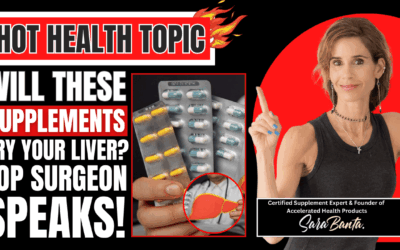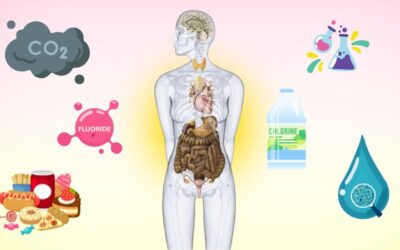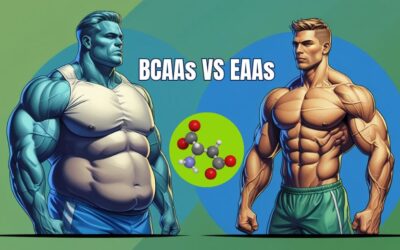Since the 1980s, we’ve been told to eat a diet heavy in grains and low in fat to lower cholesterol. I vividly remember being in my early twenties, with a cholesterol level over 200, and my doctor wanted to put me on Lipitor. However, there’s no solid evidence that lowering cholesterol reduces mortality risk.
Back in the 1950s, Ancel Keys conducted a study that supposedly linked high fat intake to increased heart attacks. But the truth is, this study only considered seven countries out of twenty-two. It conveniently ignored countries with high-fat diets but low heart disease, as well as those with high-carb diets and high heart disease. When you look at all the data, there’s no clear correlation.
Cholesterol vs. Triglycerides
First, let’s define the two main fats in the body: triglycerides and cholesterol.
- Triglycerides are fatty-acid molecules that store energy for later use. High levels of triglycerides are linked to insulin resistance, type 2 diabetes, heart disease, and other metabolic issues commonly associated with high cholesterol. This is the number to pay attention to on your blood test.
- Cholesterol, on the other hand, is a waxy lipid produced in the liver. It supports many bodily functions such as hormone production, maintaining cell membrane integrity, and aiding in vitamin absorption. About 75% of cholesterol is made by your body, and only 25% comes from your diet. So, even if you cut cholesterol from your diet, your body will produce what it needs.
Different Forms of Cholesterol
Let’s dive into the world of cholesterol transporters, namely HDL, LDL, and VLDL. I’ve learned quite a bit about these over the years, especially after my cholesterol scare in my twenties.
HDL: The “Good” Cholesterol
High-Density Lipoprotein, or HDL, is often dubbed the “good” cholesterol. But what does that mean?
Think of HDL as the cleanup crew in your bloodstream. It roams around, picking up excess cholesterol from various parts of your body and delivering it back to the liver. The liver then recycles or disposes of this cholesterol. This process is crucial because it helps maintain a balance, preventing cholesterol from accumulating and causing blockages in your arteries.
Picture little boats (HDL) cruising through my blood, picking up extra debris (cholesterol) and keeping your arteries clear. Higher levels of HDL are generally a good sign because it means more of these cleanup boats are at work, reducing your risk of heart disease.
LDL: The “Bad” Cholesterol?
Low-density lipoprotein, or LDL, often gets a bad rap as the “bad” cholesterol. But it’s not inherently evil—it’s more misunderstood.
LDL’s job is to carry cholesterol from the liver to various tissues throughout your body. Your cells use this cholesterol to build cell membranes, produce hormones, and perform other vital functions. The problem arises when there’s too much LDL in the bloodstream, especially if it’s composed of small, dense particles. These particles are more likely to penetrate the artery walls and become oxidized by free radicals. This oxidation process can trigger inflammation and lead to the formation of plaque, which can narrow or block arteries.
Imagine LDL as delivery trucks. Too many of them, or if they’re carrying damaged goods (oxidized particles), can cause traffic jams and accidents (plaque buildup) in your arteries.
VLDL: The Often Overlooked One
Very Low-Density Lipoprotein, or VLDL, is another key player in the cholesterol story, though it doesn’t get as much attention as HDL and LDL.
The liver produces VLDL and primarily carries triglycerides, another type of fat, to your tissues. Once VLDL offloads its triglycerides, it’s converted into LDL. High levels of VLDL can be problematic because they contribute to plaque buildup in the arteries, much like LDL.
Think of VLDL as heavy-duty trucks transporting large loads of raw materials (triglycerides). Once these materials are delivered, the trucks convert into regular delivery trucks (LDL), continuing to circulate in your bloodstream.
Lp(a) – Lipoprotein(a)
Imagine Lp(a) as an LDL particle (which you might know as “bad cholesterol”) with an extra protein called apolipoprotein(a) attached to it. This extra protein is similar to plasminogen, which helps break down blood clots. While the exact role of Lp(a) isn’t fully understood, it seems to be involved in tissue repair and wound healing. However, high levels of Lp(a) can increase the risk of heart disease.
Lp(a) has a similar structure to LDL but with an additional apolipoprotein(a) component. This added protein makes Lp(a) more prone to sticking to damaged blood vessel walls, promoting plaque formation.
Unlike other types of cholesterol, Lp(a) levels are primarily determined by genetics. This means diet and lifestyle changes that impact LDL and HDL levels often don’t have the same effect on Lp(a).
Elevated Lp(a) levels are linked to a higher risk of developing atherosclerosis (plaque buildup in arteries), heart attacks, and strokes. This is because Lp(a) can contribute to plaque formation and may interfere with the body’s ability to dissolve blood clots. It causes inflammation, promotes clotting, and increases the risks of heart attacks more so than LDL. Many people are born genetically predisposed to high levels of Lp(a).
Bringing It All Together
Understanding HDL, LDL, VLDL, and Lp(a) has helped me see the bigger picture of cholesterol’s role in the body. They each have their jobs, and while imbalances can lead to health issues, they are all essential for our well-being.
- HDL: The cleanup crew, keeping our arteries clear.
- LDL: The delivery trucks provide essential cholesterol to our cells, but potentially problematic if they accumulate.
- VLDL: The heavy-duty transporters of triglycerides, which eventually become LDL.
- Lp(a): This is LDL’s evil cousin that causes inflammation, clotting, and increased risk of heart disease.
Understanding Lp(a) has added a layer of depth to my approach to heart health. It’s a reminder that cholesterol and cardiovascular risk are complex and multi-faceted. Simply focusing on lowering LDL or boosting HDL isn’t enough—there are other important factors like Lp(a) that need consideration, especially if you have a family history of heart issues.
For me, this means staying proactive about my heart health, keeping up with regular check-ups, and discussing all relevant risk factors with my doctor. It’s not just about the numbers on the paper but understanding what they mean for my overall health and taking a holistic approach to managing them.
Factors that Affect Cholesterol
Diet: Eating too many unstable polyunsaturated fats, especially from processed foods, where these fats are combined with high amounts of refined carbohydrates and artificial ingredients, cause the bad cholesterol to increase. More importantly, these foods increase the risk of heart disease, diabetes, and related metabolic diseases.
Hypothyroidism: High cholesterol (mid-to high-200s) is often a sign that your thyroid is not converting cholesterol to steroid hormones. Cholesterol levels are closely tied to metabolism. When a high metabolism is present, the body produces and uses more cholesterol, leading to lower blood cholesterol levels. On the other hand, when a low metabolism is present, the body produces and uses less cholesterol, resulting in higher blood cholesterol levels.
Infection: Infections can cause low cholesterol because the body uses cholesterol to build and repair cell membranes and produce essential hormones. During an infection, the body ramps up the immune response, utilizing more cholesterol to support the production of immune cells and to repair tissues damaged by the infection. Additionally, inflammatory processes often increase the uptake of cholesterol by the liver to produce bile acids, which are necessary for digestion and immune function, further depleting cholesterol levels in the bloodstream. This increased demand and usage of cholesterol during infections can result in lower overall cholesterol levels.
Spike Protein: The spike protein from the virus that causes COVID-19 can raise cholesterol levels by disrupting liver function, triggering inflammation, and interfering with ACE2 receptors. These disruptions affect the body’s ability to manage cholesterol, leading to increased levels and potentially long-term cardiovascular risks even after recovering from the infection. Understanding these effects helps in developing better treatments and preventive measures for managing cholesterol in COVID-19 patients.
Stress: Stress also impacts cholesterol. High cortisol levels from chronic stress can lead to inflammation, causing cholesterol to scab over damaged artery areas to heal them. Cholesterol helps heal this inflammation by acting like a band-aid on damaged arteries. Blaming cholesterol for heart disease is like blaming firemen for the fire they are fighting.
Lack of Exercise: Not being active can lead to weight gain and higher levels of bad cholesterol (LDL) while lowering the good kind (HDL).
Genetics: Sometimes, high cholesterol runs in the family. If your parents or siblings have high cholesterol, you might be more likely to have it too.
Weight: Carrying extra weight can increase your total cholesterol levels. Losing weight can help lower your LDL and triglycerides while raising your HDL.
Age and Gender: Cholesterol levels tend to rise as you get older. Before menopause, women usually have lower total cholesterol levels than men of the same age. After menopause, women’s LDL levels tend to rise.
Smoking: This nasty habit can lower your HDL (good cholesterol) and damage the lining of your blood vessels, making them more prone to accumulate fatty deposits.
Medical Conditions: Diseases like diabetes, kidney disease, liver disease, and hypothyroidism can affect cholesterol levels.
Alcohol: Drinking too much alcohol can increase your total cholesterol levels. A moderate amount of alcohol might raise your HDL, but the risks of drinking too much outweigh the benefits.
Top 10 Reasons You Need Cholesterol
- Vitamin D Production: Without cholesterol, your body can’t make vitamin D, which is crucial for bone health, immune function, and mood regulation.
- Sex Hormone Production: Cholesterol is necessary for making sex hormones like testosterone, estrogen, and progesterone. Lowering cholesterol can also lower testosterone levels, often requiring men to take medications like Viagra.
- Cholesterol Production: Your body produces around 3000 mg of cholesterol daily, emphasizing its importance.
- Artery Healing: Cholesterol helps heal artery damage caused by inflammation from sugar and carbs. It’s like blaming firemen at a fire for causing it; cholesterol is there to heal, not harm.
- Brain Health: Your brain is 50% fat and 50% cholesterol. Cholesterol is crucial for brain synapses and serotonin function. A lack of cholesterol is associated with brain fog, depression, and impaired cognitive function.
- Nerve Protection: The myelin sheath, which insulates your nerves, is made of cholesterol. Without it, nerves can’t function properly, leading to diseases like MS.
- Cellular Membranes: 40% of your cellular membranes are made of cholesterol. It helps with hormone communication, ion channels, and keeping cells healthy by managing what goes in and out.
- Bile Production: Cholesterol is a precursor to bile, which is essential for digesting fats and absorbing nutrients.
- Immune System Support: Cholesterol is vital for a robust immune system, as it can prevent infections and detoxify harmful toxins like endotoxin.
- Aiding Digestion: Cholesterol supports digestion, intestinal health, and feeds gut microbes.
Cholesterol Does NOT Cause Heart Disease
Efforts to link cholesterol to heart disease have been around for over fifty years and, frankly, they’ve failed miserably at scientifically proving their case.
However, if you look at the billions made from cholesterol-lowering drugs and the stubborn persistence of anti-cholesterol dietary advice, you might think they’ve succeeded.
One of the most influential heart disease studies ever conducted found that cholesterol levels were nearly identical between those who developed heart disease and those who didn’t.
This doesn’t support the idea that cholesterol causes heart disease. Many studies show that people with higher cholesterol levels are less likely to die from heart disease, and those with heart disease who have higher cholesterol levels are less likely to die from any cause.
And here’s a kicker: the cholesterol we eat doesn’t affect our blood levels of cholesterol or our risk of heart disease. Our bodies produce their cholesterol, so the amount we consume has little impact on the levels in our blood.
Our bodies use between 1,000 and 2,000 mg of cholesterol per day. If we cut down on dietary cholesterol, our bodies simply ramp up production to make up the difference.
So, not only do blood cholesterol levels not cause heart disease, but eating high-cholesterol foods has minimal effect on cholesterol levels!
But what about the plaques in our arteries that lead to heart attacks? Aren’t they made of cholesterol?
Well, partially. But blaming cholesterol for plaques is like blaming firemen for a fire. The cholesterol is there to heal.
Cholesterol is a vital part of our immune system. It’s found in atherosclerotic plaques as a protective factor rather than a cause. On the other hand, polyunsaturated fats (PUFAs) and their metabolites, which are also present in these plaques, play a more direct role by contributing to oxidation and inflammation. These fats are mostly found in processed foods.
In the end, cholesterol levels, plaque formation, and heart disease are more influenced by our metabolism than by the cholesterol we eat.
Cholesterol and Metabolism
Cholesterol levels are influenced by many factors, but metabolism is the big one. This link between cholesterol and metabolism has been known for a century but is often overlooked these days.
When our metabolism is running high, we produce more cholesterol. However, we also use more cholesterol to make protective steroid hormones and for other functions, which lowers the amount of cholesterol in our blood.
On the flip side, when our metabolism is sluggish, we produce less cholesterol and use even less of it for those important functions, leaving more cholesterol floating around in our blood.
So, while having more cholesterol in the blood isn’t necessarily bad on its own, it can indicate a low metabolism, which is a concern and is tied to heart disease. Plus, it means our body isn’t using cholesterol as efficiently, missing out on its many benefits.
Supplements to Support Heart Health and Cholesterol Levels
Sara Banta’s Accelerated Diet Cleanse
The supplements in this comprehensive cleanse not only make intermittent fasting easier by suppressing your appetite and curbing your cravings for the sugar and refined carbs that cause an increase in bad cholesterol, but it also helps cleanse the liver daily, breaking down the unhealthy cholesterol deposits. It addresses the dangerous liver fat and visceral fat, helping you focus on foods rich in electrolytes and minerals needed for heart health. Additionally, the Liver Cleanse portion helps flush out gallstones and gallbladder sludge, relieving pressure on the cardiac system and helping lower bad cholesterol and triglycerides.
Accelerated Fast™
Accelerated Fast™ is part of Sara Banta’s Accelerated Diet Cleanse. The ingredients help curb cravings for foods that increase insulin resistance and harm heart health, such as carbs, processed foods, and sugar. It shifts your body into ketosis, teaching it to burn your own body fat as a clean ketone-based fuel. This helps clear clogged arteries and liver, reducing pressure on the heart.
The ingredients also help alleviate fatty liver, improving liver function, insulin resistance, and heart disease. It boosts ATP production, providing more true cellular energy than in an insulin-resistant state.
Acceleradine® Iodine
If you’re aiming to combat iodine deficiency, which impacts 96% of the U.S. population, Acceleradine® Iodine is a game-changer. This deficiency can drastically impair mitochondrial function, slashing ATP production from an ideal 36 to a mere 2, leading to sluggish metabolism, hypothyroidism, high cholesterol, heart disease, and weight gain.
Iodine deficiency is the number one cause of mitochondrial failure.
Why You Need Iodine:
- Optimal Thyroid Function: Iodine is vital for thyroid health and the production of hormones T2, T3, and T4. Hypothyroidism is a cause of high cholesterol and impaired heart function.
- Boosts ATP Production: Iodine significantly increases ATP production in mitochondria, enhancing energy levels and supporting a more active metabolism.
- Cellular Detoxification: Iodine helps detoxify cells from heavy metals, toxins, and radiation that can hinder mitochondrial function, metabolism, liver function, and weight loss.
- Displaces Harmful Substances: Iodine removes harmful substances like fluoride, chlorine, and bromide from cells, which are known to contribute to hypothyroidism, liver issues, lowered ATP, and a sluggish metabolism.
- Prevents Toxic Overload: High-dose iodine prevents new toxins from binding to cells’ receptor sites, protecting against their negative effects.
- Mitigates Spike Protein Damage: It may alleviate damage caused by the Spike Protein, linked to mitochondrial damage, metabolic slowdown, heart disease, and increased cholesterol.
- Blood Cleansing and Hormonal Balance: Iodine aids in cleansing the blood and supporting liver detoxification, helping to eliminate toxins linked to lowered ATP and weight gain. It also helps regulate estrogen, promoting hormonal balance and reducing estrogen dominance.
Why Choose Acceleradine® Iodine?
Acceleradine® Iodine stands out as the only pure, natural singlet active iodine (I-) suspended in alcohol and enhanced with scalar frequencies. As a single atom of iodine without attachments to other atoms, it achieves increased bioavailability and absorbability. This means that even if your body is weak, it can efficiently absorb this iodine in every cell, ensuring you get the maximum benefits. Most iodine supplements only achieve 10 to 20 percent absorption.
Sara Banta's Accelerated Liver Flush Cleanse
This liver flush helps expel gallstones and liver stones, enhancing liver function and, in turn, heart health. The combination of ingredients helps lower bad cholesterol, lower AST and ALT liver enzymes, replace damaged liver cells, eliminate toxins, improve metabolism and nutrient absorption, and restore ACE2 receptor function compromised by the Spike Protein.
Accelerated Ancient Salt®
Contrary to some beliefs, reducing high-quality salt intake doesn’t lead to higher heart failure or mortality rates. Decreasing salt can increase all-cause mortality. People at risk for heart disease often use diuretics, which eliminate salt from the body, leading to low sodium levels and less effective diuretics. Accelerated Ancient Salt® includes over 62 minerals needed for cellular function and heart health and has a strong negative charge that helps remove positively charged toxins, parasites, and undigested fats while providing essential electrolytes and minerals for heart health. It’s pure, raw, and untreated, without the microplastics found in most salts.
N1O1 Nitric Oxide Lozenges
Nitric oxide (NO) is a potent vasodilator that keeps arteries open and clean from plaque buildup. Low NO production is linked to major cardiovascular risk factors. N1O1 Nitric Oxide lozenges help increase NO production, enhance oxygen and nutrient supply to cells, support cardiovascular health, maintain regular heart function, improve blood circulation and blood pressure, facilitate optimal blood flow to the brain and organs, provide antioxidant support, boost cognitive function and memory, and potentially alleviate erectile dysfunction.
Berberine
Berberine helps lower blood sugar and improve the risk of heart disease. It’s shown to work as effectively as the prescription drug Metformin for insulin resistance, which is a precursor to heart disease.
Ola Loa
This award-winning energy multivitamin and electrolyte drink contains essential nutrients for heart health, including potassium, magnesium, B-complex vitamins, and vitamins A, D, E, and K. It supports physical exercise, which further strengthens heart health.
Vitamin D
Vitamin D regulates blood pressure, reduces inflammation in blood vessels, promotes better blood flow, lowers the risk of heart disease, and aids in calcium absorption.
Diet to Support A Healthy Heart and Cholesterol Levels
Focus on the Right Proteins
Not all proteins are created equal. For optimal cardiovascular health and cholesterol levels, aim for wild animal proteins. These have lower levels of amyloid proteins and linoleic acid, which worsen cholesterol balance and heart health. Chicken, poultry, and conventional beef are loaded with omega-6 fats, especially linoleic acid, and amyloid proteins. Amyloids are linked to various diseases and autoimmune conditions. Linoleic acid is unstable in the body, leading to oxidative stress, which causes fat storage, lowers ATP production, and triggers a series of negative effects.
Amyloids are misfolded proteins that aren’t broken down into usable amino acids for building lean tissue. They can accumulate in organs like the brain, feeding pathogens and reactivating viruses, which leads to low ATP function, gut issues, pathogen proliferation, fat gain, inflammation, and autoimmune problems.
Cut Out Processed Foods
Processed foods are the biggest contributor to bad cholesterol, insulin resistance and heart disease. These ultra-processed foods can drop your ATP output to just 2 ATP per mitochondrion, compared to the ideal 36 ATP. These foods generate excess “waste,” overwhelming your body’s cleanup efforts and halting mitochondrial biogenesis. The result? Less ATP, fewer new mitochondria, dirtier existing mitochondria, and reduced cellular energy. With less cellular energy, all functions in the body suffer leading to hypothyroidism, heart disease, fatty liver, and more.
Avoid PUFAs
Polyunsaturated fats (PUFAs) are everywhere—processed foods, fake butter, salad dressings, fried foods, poultry, pork, nuts, seeds, seed oils, and fatty fish. The main offender is linoleic acid (LA). These fats can mess with your metabolism, damage your mitochondria, and contribute to fat gain, heart disease, obesity, diabetes, insulin resistance, Alzheimer’s, and Parkinson’s disease.
PUFAs have multiple double bonds in their carbon chains, unlike saturated fats. This structure makes them fragile and prone to becoming inflammatory compounds, which harm mitochondria and impair ATP production. They also block fatty acid beta-oxidation, making your body less efficient at using fat for fuel and leading to larger fat cells. Even worse, these fats can stay in your body for up to six years, continuously disrupting your metabolism.
Avoid Sulfur-Rich Vegetables
Skip sulfur-rich veggies like broccoli, cauliflower, cabbage, kale, onions, garlic, and egg yolks. These can overload your detox pathways, causing increased cholesterol levels, slowing down your metabolism, ATP production, and fat burning, while increasing inflammation. Also, watch out for hidden sulfur in medications and supplements.
Eliminate Oxalate-Rich Foods
Cut out oxalate-heavy foods such as spinach, almonds, berries, kale, and most nuts. Although these foods are seemingly “healthy”, the oxalates can slow down thyroid function, which in turn slows ATP production and contributes to suboptimal cholesterol levels and heart health.
Reduce Histamine-Rich Foods
Avoid high-histamine foods to reduce the histamine load on your body. This helps your digestive system heal, supports better insulin regulation, reduces inflammation, and allows for better mitochondrial function.
Exercise Regularly
Regular physical activity increases the good HDL cholesterol and helps manage the bad cholesterol in addition to improving insulin resistance and cardiovascular health. High-intensity interval training (HIIT) and strength training are particularly effective for heart health.
Avoid Toxins
Limit exposure to environmental toxins like pesticides and heavy metals, which can damage mitochondria, back up the liver, and lead to worsened cardiovascular health. Choose organic foods and use natural cleaning products whenever possible.
Get Enough Sleep
Sleep is when your body repairs and recharges. Lack of sleep can disrupt energy production, and worsen insulin resistance and heart health.
Manage Stress
Chronic stress can worsen heart health and lower thyroid health and metabolism. Practices like mindfulness, meditation, and relaxation techniques can help maintain a healthy balance and support heart health.
Cholesterol is essential for our health, supporting brain function, hormone production, and immune system efficiency. Avoiding cholesterol-rich foods or those that boost its production (like eggs, sugar, and saturated fats) is unnecessary. If you have high cholesterol, it’s likely due to a low metabolism, not your diet. Cholesterol-lowering drugs are not the solution.
Embrace cholesterol and support your metabolism with a balanced diet. Your body—and your heart—will thank you.
Sara Banta
Sara Banta is a Stanford University Graduate with a Degree in Economics and Psychology, and a certified Natural Supplement Expert & Graduate of the Institute for Integrative Nutrition. Sara is the Founder of Accelerated Health Products and host of the health & wellness podcast, Accelerated Health Radio.
- Sara Bantahttps://sarabantahealth.com/author/sarabanta/
- Sara Bantahttps://sarabantahealth.com/author/sarabanta/
- Sara Bantahttps://sarabantahealth.com/author/sarabanta/
- Sara Bantahttps://sarabantahealth.com/author/sarabanta/









